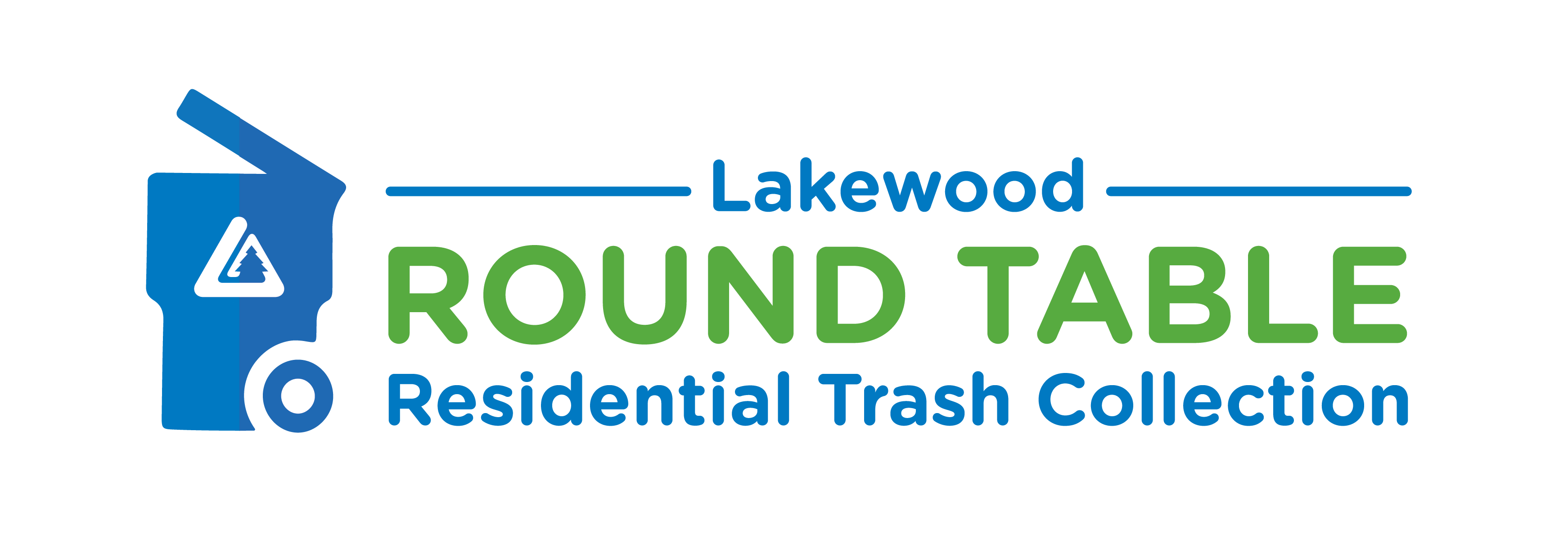What are Lakewood's community goals for trash and recycling?
CLOSED: We are analyzing all of your comments now! If you have additional comments, please email sustainability@lakewood.org.

Quick Summary
Did you know Lakewood has adopted goals to reduce its greenhouse gas emissions, divert waste from the landfill, and make household costs affordable? The Lakewood Sustainability Plan and Comprehensive Plan include strategies to achieve these goals. Take a look in the Deep Dive section to learn about how the plans were developed and how we plan to achieve our community goals.
Deep Dive
How was the plan developed?
The planning process for the Sustainability Plan began in the fall of 2013, involving eight open houses, 87 work group participants, and over 450 volunteer hours from Lakewood community members. Six work groups were organized to address a wide range of sustainability topics, including zero waste. City staff, community members, and industry professionals joined residents in each work group to discuss existing challenges and collaborate on goals, objectives, targets, and strategies that would eventually become the Sustainability Plan.
Zero Waste Goals and Objectives:
- Minimize Lakewood’s communitywide greenhouse gas emissions and prepare and adapt to ongoing climate change impacts (p. 26).
- Make household costs affordable and accessible for Lakewood residents (p.64).
- Create a culture of zero waste in Lakewood through education, municipal operations, infrastructure, and services (p. 74).
- Foster sustainable household waste management (p. 82).
Zero Waste Targets:
- Reduce communitywide greenhouse gas emissions by 20 percent below 2007 levels by 2025 (p. 26).
- Reduce communitywide greenhouse gas emissions by 50 percent below 2007 levels by 2050 (p. 26).
- Achieve a 60 percent communitywide diversion rate by 2025 (p. 74).
- Achieve a 60 percent residential (single-family residences and complexes with eight units or fewer) diversion rate by 2025 (p. 82).
How was the plan developed?
The planning process for the recently updated Comprehensive Plan began in the fall of 2013 and involved eight open houses and the formation of a Comprehensive Plan Advisory Committee to
provide guidance and
feedback to staff on the vision, guiding principles, goals, and action steps.Zero Waste Goals:
- Promote clean and safe neighborhoods (p. 4-14).
- Improve air quality and reduce greenhouse gas (GHG) emissions by working toward compliance with state and local air quality standards (p.7-8).
- Decrease the amount of waste generated (p. 7-16).
- Increase recycling, composting, and municipal solid waste disposal education (p. 7-17).
- Increase waste diversion rates (p. 7-17).
Share What are Lakewood's community goals for trash and recycling? on Facebook
Share What are Lakewood's community goals for trash and recycling? on Twitter
Share What are Lakewood's community goals for trash and recycling? on Linkedin
Email What are Lakewood's community goals for trash and recycling? link
Consultation has concluded
1 comment


